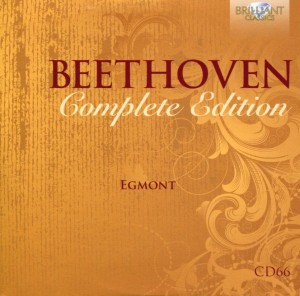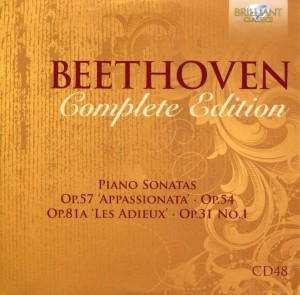That’s an interesting title.
Or is it a name?
Time to let my fingers do the Googling.
Here’s what I discovered on Wikipedia:
Egmont, Op. 84, by Ludwig van Beethoven, is a set of incidental music pieces for the 1787 play of the same name by Johann Wolfgang von Goethe. It consists of an overture followed by a sequence of nine additional pieces for soprano, male narrator and full symphony orchestra. (The male narrator is optional; he is not used in the play, and he does not appear in all recordings of the complete incidental music.) Beethoven wrote it between October 1809 and June 1810, and it was premiered on 15 June 1810.
The subject of the music and dramatic narrative is the life and heroism of a 16th-century Dutch nobleman, the Count of Egmont. It was composed during the period of the Napoleonic Wars, at a time when the French Empire had extended its domination over most of Europe. Beethoven had famously expressed his great outrage over Napoleon Bonaparte’s decision to crown himself Emperor in 1804, furiously scratching out his name in the dedication of the Eroica Symphony. In the music for Egmont, Beethoven expressed his own political concerns through the exaltation of the heroic sacrifice of a man condemned to death for having taken a valiant stand against oppression. The Overture later became an unofficial anthem of the 1956 Hungarian revolution.
Fascinating.
The Overture (“Ouverture,” as it’s listed on the back of the CD) is amazing music. Dynamic. Heroic. Melodic.
The performers on today’s CD are:
Elisabeth Breul soprano
Horst Schulze speaker
Staatskapelle Berlin
Heinz Bongartz conductor
Unfortunately, as soon as the singing begins, Egmont loses me. Elisabeth Breul’s voice is the kind of soprano I don’t particularly enjoy. Clearly, she is very talented. But her tone rubs me the wrong way.
The music is superb, however. It would be a tremendously enjoyable CD if not for the singing and speaking parts. The speaker’s voice is fine. It’s just German. And I don’t speak German.
The recording was made in 1970. But it’s crystal clear and vibrant.
Beethoven was 39 going on 40 when he composed Egmont.


